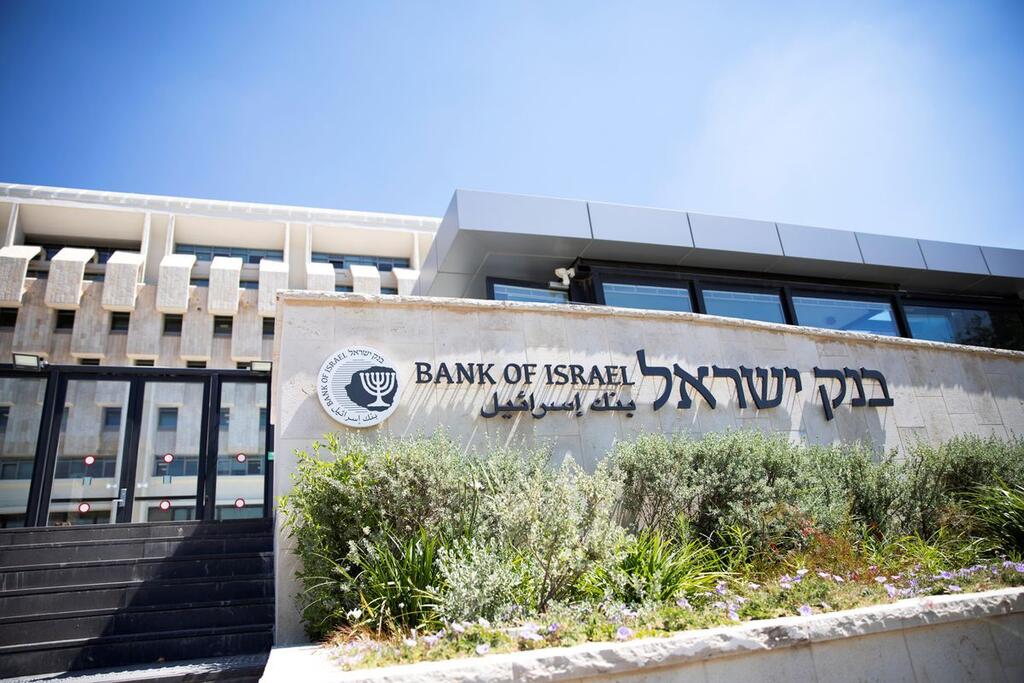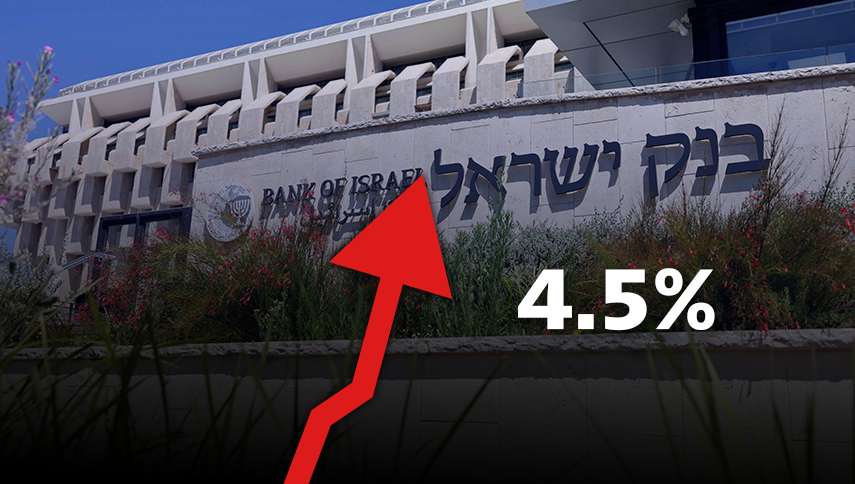The Bank of Israel on Monday projected that the Israeli economy stands to lose an average of NIS 47.6 billion ($13.3 billion) annually for the next three years if the government's proposed legal overhaul is passed.
Related stories:
The central bank warns judicial legislation will have an adverse on public perception and erode confidence in Israel's economy and institutions.
4 View gallery


Bank of Israel Governor Amir Yaron and Prime Minister Benjamin Netanyahu
(Photo: GPO, Reuters)
The latest analysis reveals that even in the most optimistic scenario, the Israeli economy is projected to lose an estimated average of NIS 13.7 billion ($3.8 billion) annually over the next three years.
“The compilation of the forecast during the current period involved significant uncertainty due to the legislative process regarding the judicial system,“ bank officials wrote in the lender’s monthly forecast.
“This process may have a significant impact on economic and financial developments in the short term and in the longer term, and therefore on the monetary policy that will be necessary during the forecast period.”
The bank presented analyses based on two potential scenarios. One where the dispute surrounding judicial changes is “resolved in a way that does not affect economic activity moving forward” and another should “the legislative and institutional changes be accompanied by an increase in the country’s risk premium, a negative impact to exports, and declines in domestic investment and in demand for private consumption.”
For the former, the bank projects that GDP will grow by 2.5% in 2023, and by 3.5% in 2024. The inflation rate is expected to stand at 3.9% in 2023 and 2.3% in 2024. The inflation rate in the coming four quarters is expected to be 3.4% and the monetary interest rate is expected to average 4.75% in the first quarter of 2024.
“In view of the tremendous uncertainty in the second situation… we present a broad range of the extent of the potential impact to GDP and of the effect on other economic variables,” the forecast read.
“This range depends partly on the intensity and persistence of the changes in the risk premium, in the markets, and in demand. As such, the assessments presented below should be understood as indications of the scale of the impact.
The bank predicts that in case the impact of the changes subsides relatively quickly, the adverse effect is estimated at an annual average of about 0.8% of GDP during the three-year period, which is NIS 13.7 billion per annum, and in case the public (the financial markets, the real sector, and consumers) perceives that the effects of the legislative changes will persist, the impact to GDP is estimated at an annual average of about 2.8% of GDP in each of the coming three years, which is NIS 47.6 billion per year.
4 View gallery


Police deploy water cannons to disperse anti-judicial reform protesters obstructing roads in Tel Aviv
(Photo: Uri Kislev)
The central bank's warning came shortly after it raised its benchmark interest rate by another quarter of a percentage point, the ninth straight meeting it has increased rates amid a battle against inflation that remains above 5%.
"Economic activity in Israel is at a high level, and is accompanied by a tight labor market, although there is some moderation in a number of indicators," the bank said in its decision.
The central bank lifted its key rate to 4.5% - its highest level since 2007 - from 4.25%.
Last April, policymakers began raising the rate from 0.1% and have been aggressive during a front-loading process, but most analysts believe the tightening cycle is close to over.
Despite the rate hikes, Israel's annual inflation rate stood at 5.2% in February, slightly lower than a 14-year high of 5.4% in January but well above the government's 1%-3% annual target range.
At the same time, Israel's economy grew a faster-than-expected 6.4% in 2022, although growth is expected to slow to below 3% this year amid the steep rate hikes.
Liam Peach, an economist at Capital Economics, said the central bank sounded "slightly less hawkish than at its previous meeting."
"Inflation pressures are likely to remain strong this year, but the door for further tightening appears to be closing and we think there will be just one more 25bp interest rate hike in this cycle," he said.
Reuters contributed to this report.



